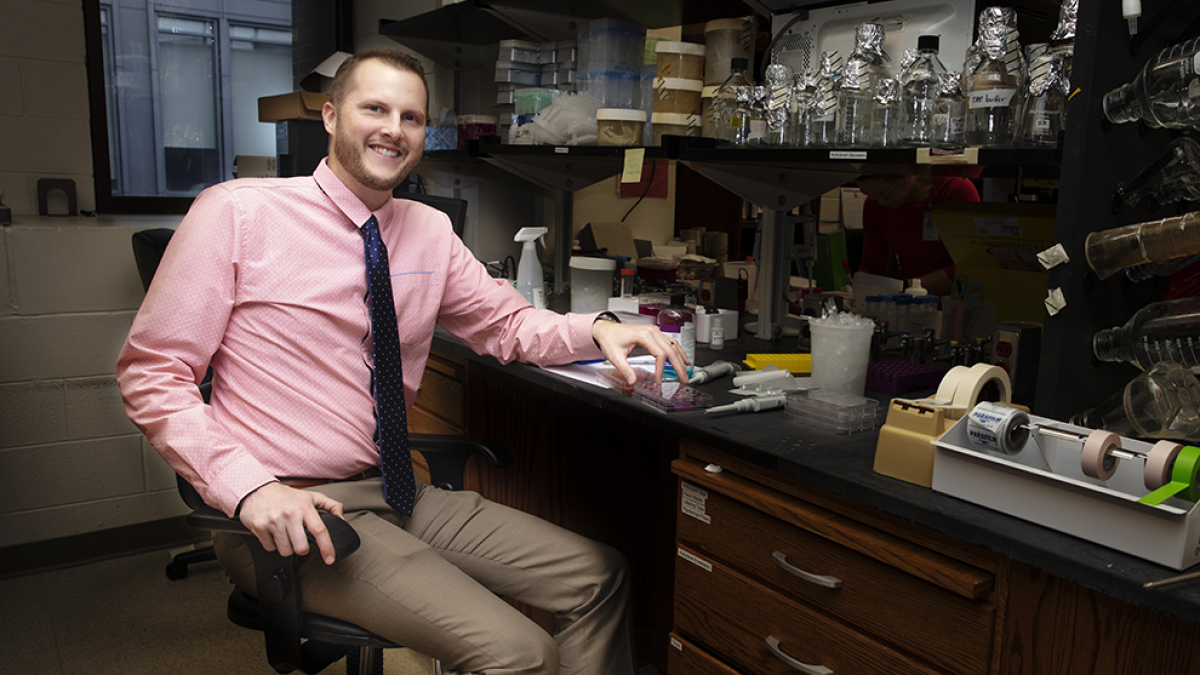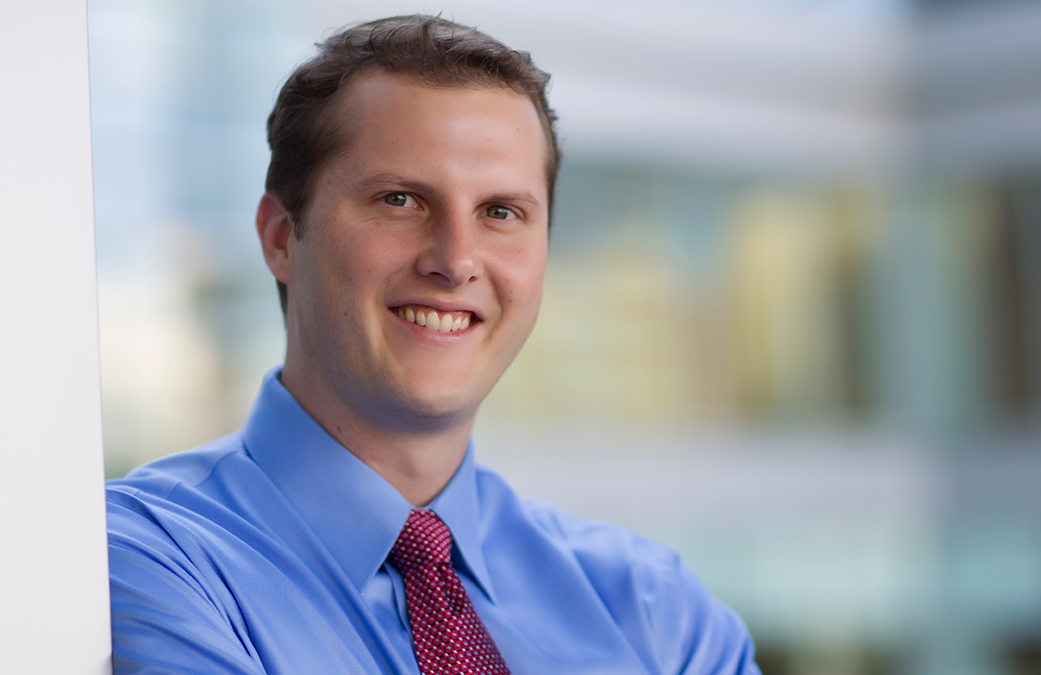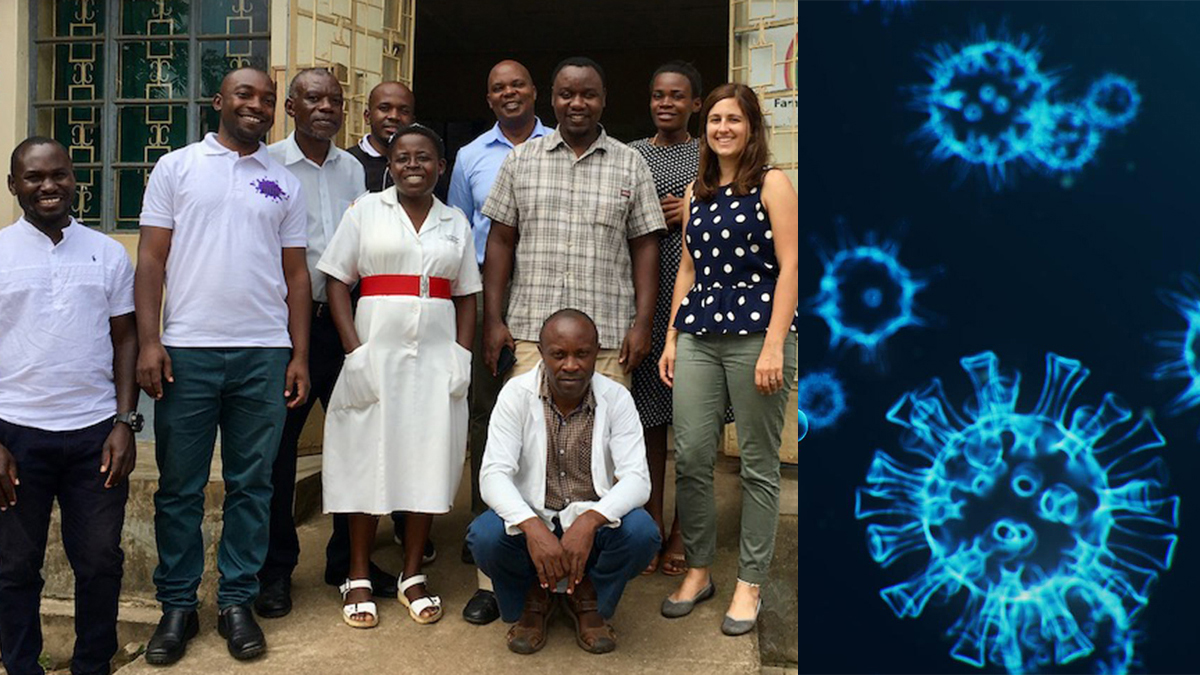Muting genetic mutations
UNC Chapel-Hill Associate Professor Chad Pecot’s startup company EnFuego Therapeutics creates RNA-interference drugs to silence cancer-related gene mutations.

With more than 1.5 million people in the U.S. diagnosed with cancer in 2019 alone, Chad Pecot is determined to make a lasting impact on the lives of those going through treatment. An associate professor and associate director of translational thoracic oncology at the UNC Lineberger Comprehensive Cancer Center, Pecot – a cancer survivor himself – understands what patients go through during treatment.
In his case, he was cured through surgery and chemotherapy, but as an oncologist, he knows all too well that not all cancer patients experience the same outcome. His journey led him to launch EnFuego Therapeutics, a company merging science and technology to create RNA interference (RNAi)-based drugs for treating cancer.
“Many, many people die of cancer, and although we’ve made a lot of progress in cancer research and treatment, there’s still just such a long way to go,” says Pecot. “What really attracted me to what I work on – and what led to me starting EnFuego Therapeutics – is the power of RNA interference technology.”
Discovered in 1998, RNAi is a way in which very small, synthetic, double-stranded RNAs can be created and then used to silence a gene. The technology created excitement for many drug companies when it won the Nobel Prize in 2006.
“The implications of this technology are tremendous because there are many genes in many diseases – cancer being one of them – that we know are important in making the disease process happen,” says Pecot. “A lot of drugs being developed don’t have a way of hitting many of the genes that we know are important. So that’s what EnFuego Therapeutics is all about. We are trying to create RNAi-based drugs for treating cancer.”
Many drug companies have tried to further develop RNAi technology for cancer therapeutics but have not had much success. Not one to back down from a challenge, Pecot’s passion to help cancer patients pushed him to explore RNAi technology further.
“Many drug companies bailed on the possibility of this being a good treatment for cancer. I realized if other drug companies weren’t going to try to license it and take it to people, then it’s either going to die, or I’m going to do it,” Pecot says. “It would be a shame to think that something that could potentially reach a large number of people would be abandoned because it didn’t fit the portfolio or business plan of a big company. I eventually realized that it would always bother me if I decided not to give this a shot.”
And although there have been many advancements and great progress in the treatment of cancer, it can often return.
“A lot of therapies in cancer often end up being knockout blows to the tumor, but they don’t kill it. We can often think a knockout is a win, and it’s not. The tumor will get back up, and they always get back up… and they often end up winning in the end,” says Pecot.
“Unfortunately, chemotherapy is not curative in most cancers. Because I was fortunate to be cured, I want the same result for everyone else,” he says. “We have some interesting new approaches that we want to evaluate that we’re hoping can be more of an ‘extinguishing event’ through combinations that RNAi allows you to approach.”
In launching EnFuego Therapeutics, Pecot used innovation and entrepreneurship resources available at Carolina to develop his startup journey, including KickStart Venture Services within the UNC Office of Technology Commercialization. KickStart Venture Services supports faculty startup formation, business development and growth by providing coaching and mentoring, early-stage funding, connection with key service providers, management, investors and space.
“Hands down, the most valuable resource I was able to tap into and that I am very grateful for is KickStart Venture Services,” says Pecot. “From networking and understanding the biotech landscape to questions about how a startup works and the ins and outs of venture capital, KickStart helped me tremendously.”
EnFuego was awarded a $30,000 technology development grant from the Office of Technology Commercialization as well as a $100,000 grant from the NC Biotechnology Center to work on its innovative technology and approach to cancer treatment. As EnFuego continues to grow, Pecot looks to raise additional funding to continue the evaluation of RNAi technology as well as secure incubator space.
“We’re going after the big players in cancer, trying to develop drugs against several very well-validated targets of cancer that would otherwise have been regarded as undruggable,” adds Pecot. “We want to find ways to synergize some of these approaches that would otherwise be very hard to do with current therapeutic strategies.”




